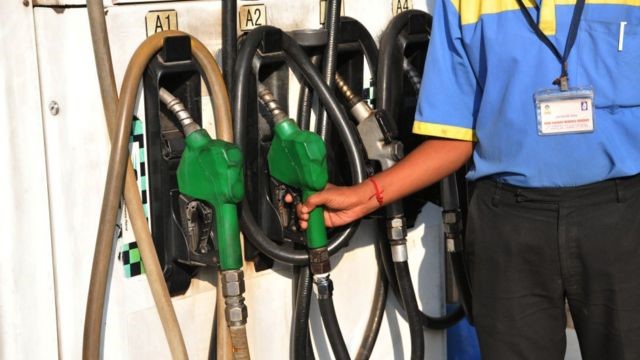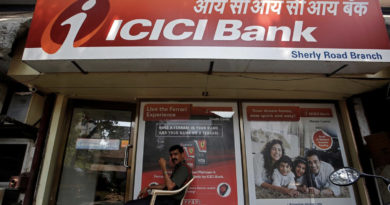Petrol and diesel prices: Will common man get relief soon?
For the first time in India, the price of petrol has gone up to Rs 100 per liter in some cities. If we look at the recent trend of the price of crude oil in international markets, then oil can be more expensive.
So are the ordinary consumers not going to get relief soon? Do we have to gradually reduce our dependence on oil and diesel?
The opposition is constantly criticizing the government on the skyrocketing prices of oil. Congress leader Abhishek Manu Singhvi said in a press conference a few days ago that the government should immediately remove the additional taxes on petrol and diesel. This will help in bringing down the prices.
He said that the Modi government has been the most expensive government for the people, which has imposed heavy taxes on the people.
Amidst all this, the common man is upset and the farmers are unhappy. Modi government is under pressure to reduce excise duty.
What can be the price?
The news is that the central government is considering reducing excise duty slightly. According to sources, a consensus has not yet been reached in the financial and oil ministries on this.
But if the government also reduces the excise duty a little, but on the other hand, the price of crude oil in international markets keeps increasing, which is quite likely, then consumers in India will not get much relief.
Petrol and diesel prices may fluctuate in the next few weeks and months, but experts say that there will be a big jump in the coming times.
These days, the price of crude oil in the international market is around $ 66-67 per barrel. So, could this year be any more?
Vandana Hari of Indian origin in Singapore keeps a keen eye on the oil industry for the last 25 years. She says, “Can 100 (Rupees) increase more than 100 (Rupees).”
The central government is trying to keep the oil price under control, but in the view of the ruling Bharatiya Janata Party’s national spokesperson for economic affairs, Gopal Krishna Agarwal, the government is tied up.
He says, “Overall the revenue collection (revenue collection) of the government has decreased by 14.5 percent. The government’s expenditure has gone up by 34.5 percent during this period. Despite this, the government has not increased tax. Due to this the fiscal deficit is 9.5 percent. It is done. Gross domestic product is 87 per cent of the borrowings. So I do not see any scope of any relief from the Center. State governments should give relief. “
But if the hands of the central government are tied up, then the state governments are also compelled. The center has the largest share in the earnings from oil. For every 100 rupees of oil, add taxes of the central and state governments and agent’s commission, then 65 rupees are made, out of which 37 rupees is the central and 23 rupees are entitled to the state governments.
During the lockdown, when the price of oil fell to $ 20 per barrel in the international market badly, people expected that the prices of petrol and diesel would come down, but they kept increasing. Why did this happen?
Vandana Hari says, “Last year when the price of crude oil in the international market was reduced considerably, but your (in the country) prices did not come down because the central government increased the tax on oil twice.”
He says that last year it did not have such an impact on the common people, because the base price ($ 20) of crude oil was very low. Now it is $ 67, which means it is 80 percent expensive.
The prices of petrol and diesel found at petrol pumps in the country are linked to the international market prices. This means that if the price of oil decreases or increases in the international market, then similar fluctuations should be seen in India. But this has not happened in the last six years.
Former chairman of Oil and Natural Gas Corporation Limited (ONGC) RS Sharma says, “When this government came to power in 2014, the price of oil was $ 106 per barrel. Since then prices have been coming down. Our PM Also jokingly said that I am lucky that since I came to power, the oil rates are going down. At that time the price of petrol was 72 rupees per liter. The government did not let the price in India be reduced, instead the government Increased excise duty. “
Tips to give relief to common man
So will the prices of petrol and diesel continue to increase in future and the public will not get any relief now? Experts tell many tips to reduce the price of petrol and diesel, but they are all difficult.
First, the central and state governments should reduce the excise duty imposed on oil, but both are not in the mood to do so.
The second is the suggestion to reinstate the subsidy, which is against the economic ideology of the Modi government.
BJP’s national spokesperson Gopal Krishna Agarwal says, “Subsidies are a step backwards. Think if the price of petrol goes down, the rich will also benefit, not only the poor. We can do this in gas. PM says That there is good economy, good politics and people are feeling it. “
Vandana Hari recommends to try this idea that those who drive scooters etc. should be subsidized in petrol like big restaurants and hotels in LPG cylinders are not subsidized, only the poor.
There is also a third option to provide relief to the people. Option to bring oil under GST. But this is a political issue and as former ONGC chairman RS Sharma said that the state governments had agreed to the GST bill on the condition that liquor and oil be kept out of GST.
The reason for this is that by levying excise duty on liquor and petrol, diesel etc., the state governments earn a lot of money. All ministers from the Prime Minister to the Cabinet have been strongly advocating the introduction of petrol and diesel under GST.
Any other option to make oil cheaper
BJP’s Gopal Krishna Agarwal talks of another option and that is that the Indian government is trying to buy crude oil from Iran and Venezuela. Due to US restrictions on these two countries, these imports have been in a dilemma. From Iran, India intends to buy oil in rupees instead of dollars, for which Iran is ready.
Some experts also recommend that India increase its strategic reserve of oil. At present, there is a need for 10 days of oil in these reserves for the needs of the people, when the entire import of oil is stopped in the country. Private companies have oil reserves for several days.
The government wants to increase the reserve from 10 days to 90 days, on which work has started. Although the Strategic Reserve is for emergency time, if the price of oil starts skyrocketing due to disaster or war in the international market, the oil stored in the reserves can be used.
At this time, America has created the largest such reserves in the world. After the US and China, India imports the most oil. Therefore, experts insist on increasing the reserve.
Import dependency
Petroleum and gas are available in very small quantities in India, hence they are imported. The country had to spend 85 percent of its expenditure last year for importing petroleum products from abroad, which cost $ 120 billion.
An idea among experts is a long debated issue and that is that in the future, experts should find a solution for a long time and reduce dependence on oil. The Modi government intends to launch several schemes for the solution for a long time.
Prime Minister Narendra Modi, in a speech in Tamil Nadu on 17 February, also emphasized on diversity in energy and reducing dependence on it.
Trying to reduce dependence on oil
According to Vandana Hari, founder of Vanda Insights organization in Singapore, the Indian government should think ahead. His advice was that plans should be made keeping in front of 10-15 years.
She says, “In the end, the use of oil will be less. We are moving towards electric vehicles, moving towards hydrogen or moving towards natural gas, which is a good thing. But before 2030-35 not possible.”
Vandana advocates the expansion of public transport like metro.
Consumers of oil may get relief after a long time, but may not get any relief in the coming months and years.
But two things of RS Sharma are important here: one is that according to him governments usually run for a period of five years and make plans accordingly. Plans are not made for a long time of 15 years.
His second argument is that even after implementing all measures to reduce dependence on oil for a long time, dependence will be reduced by only 15 percent. Yes, in spite of this, they are among those who are in favor of reducing dependence on oil and diversification of energy.
Presently, Gopal Krishna Agarwal gives the verdict on the decision not to “reduce the prices of petrol and diesel”. People can call it the helplessness of the government and also the choice.
He says, “If we reduce the prices of petroleum products by reducing excise duty, then we have to increase the tax a bit. This is the same thing. Therefore, the government has not done this with the choice.
“As Finance Minister Nirmala Sitharaman says, this is a religious crisis. This is the best option right now. If revenue collection increases, prices may decline. “
Oil serves as fuel for the development of India’s huge economy. If oil prices continue to increase, then inflation, GDP and current account pressure will increase. Due to which the health of the economy may deteriorate and this can have a serious impact on demand and then economic growth will also be affected.




